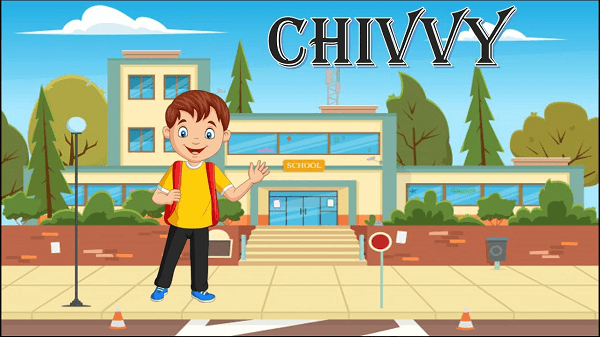Chivvy Summary Class 7 EnglishThe sonnet 'Chivvy' was composed by the writer 'Michael Rosen.' The sonnet explains various rules and regulations that grownups force on kids. The grownups consistently offer the kids a reiteration of guidelines like "speak up," "don't stare," "don't point," "don't pick your nose," "sit up," "say kindly," "less noise, etc. The artist questions the seniors why they can not remain quiet about their ideas. The poem then recounts a time when the young child has developed and cannot make his judgments. The same adults then criticize the grownup child for their incapacity to think for themselves. 
SummaryThe writer expresses that elderly folks/more established individuals generally help little kids speak out when timid or speaking inappropriately. Now and again, kids eat and talk simultaneously. Thus, the older folks deny them from speaking while at the same time eating. Furthermore, they urge not to stare at anything strongly or to redirect somebody's consideration by showing their finger. Adults additionally hate youngsters putting their fingers in their noses. Therefore, they, as often as possible, prompt them not to do as such. The artist states in this stanza that grownups used to advise kids to sit appropriately. Little kids should constantly say 'please' when they need support or something from somebody. If the kids make a ton of noise, they are told to calm down. If they wish to close the entryway when a young person is nearby, they will request that the person in question make it happen yet won't close it. They will demand that you cease dawdling, whether intentionally or accidentally. If fundamental, they will ask concerning regardless of whether you are conveying your hankie. They despise having their hands in their pockets, and at whatever point they witness a youth doing as such, they will demand that the kid eliminate their hands from their pockets. The poet continues with additional 'dos' and 'don'ts' in this verse. If youngsters are shaky, adults urge them to pull up their socks and stand straight. They also ask that they not interfere with the debate. When a youngster strives to make others laugh, they are ignored or condemned. They dislike it when the youngster places their hands on the table; therefore, they request that the child refrains from doing so in front of others. The poet contrasts adult directives such as 'dos' and 'don'ts' in this pair. When youngsters desire to utilize their intellect to do anything independently, they are banned. However, if they execute their commands, it is considered that they are incapable of exercising their own decision. ConclusionThe opening section of the poem includes a precise list of guidelines. The adults frequently give the older children in the household these orders. Some examples of these expressions are "speak up," "make less noise," "don't stare," "don't talk with your mouth full," and so on. The poem focuses on how youngsters are taught to act by the elders' instructions. Following the first stanza, the poem's second and third stanzas continue with another series of instructions. Grownups frequently monitor every activity of youngsters. The poem finishes with a couplet stating that the kid from the poem's beginning has grown up and matured. He is still being chastised, but not for the same reason. At this time in his development, the youngster lacks the competence and confidence to make decisions. Throughout his upbringing, his parents scolded him and asked him to do precisely what he was instructed. After maturing, the kid cannot make decisions and is reprimanded by their parents.
Next TopicEat That Frog! by Brian Tracy Summary
|
 For Videos Join Our Youtube Channel: Join Now
For Videos Join Our Youtube Channel: Join Now
Feedback
- Send your Feedback to [email protected]
Help Others, Please Share









